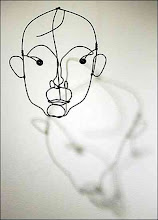My reading over the last couple of years, most importantly in Joseph LeDoux’s The Synaptic Self, but also in work by Damasio, Hofstadter, Dehaene, and others, has led me to believe that we are feeling in those moments the brain learning in a dramatic and intense way. In those moments we are experiencing the brain doing what it always does, what it exists to do—gathering information and storing it away, using data to build schemas of experience that it can refer back to in the future when it needs it—but it is doing so in a particularly rich mixture (which would make sense if you assume that the most affective poems are those that have the richest language).
LeDoux and others have discovered in the last 50 years or so that we learn (and “we” come into being, LeDoux argues) via a process called “synaptic plasticity”, which works via a process whereby the frequency or intensity of a synapse’s firing strengthens that synapse and thus creates memories (whether explicit memory [accessible, such as what I had for breakfast today] or implicit [memories whose conscious access is not required, such as my knowledge of how to cut and eat a grapefruit]). This is a highly simplified version of what actually happens, but it sums up the process.
Usually this synaptic firing doesn’t just involve a single axon and a single dendrite, just as one might guess when thinking about the process that creates all of our memory banks and our ability to communicate via language. Almost all firings are multivalent, involving input from several different locations among groups of neurons. The resulting complexity should be coming into focus here. To boot, there are several different “systems” of input. Each of the senses has its own input system, for example. All of these inputs are pulled together in the frontal lobes and the “working memory” before being either imprinted into long-term memory (if that is the fate of the data) or forgotten.
It seems to me that those moments of poetic intensity are moments when we are feeling the brain going through this rich, complex process in a very short period of time, which surely involves the release of a great deal of serotonin and/or other neurotransmitters—that chemical burst is probably responsible for the sense of blossoming or head removal, the tingling, which is quite similar to the “aha” moment one feels when a difficult problem has been solved—as though a veil has been removed. That seems like a possible theory to me, at least. A particularly intense poem (which is why I like to use very short poems as a test) or an intense moment in a poem (such as the end of a poem, where both a sense of closure and an opening up can evoke such feeling in the reader) is likely to bring energy from multiple linguistic directions in a rhythmic manner—high frequency and intensity of firing. Maybe someone out there is already doing hard research on this idea re: language processing?
This new research suggests that my wondering/wandering here may not be far off the right track. Mehta and Kumar have discovered that there are optimal frequencies of synaptic firing that encourage learning. It’s not that learning is optimized by the highest intensity of firing (cramming for a final an hour or two before the exam), but that there are lower frequency points that are ideal. You’ll get a clearer sense of this by reading the article. My guess is that some poems (or songs or prose fiction or cinema) that are novel to the reader or listener are able to hit just the right frequency of incoming data that is resonant with the ideal rhythm of the involved neurons so that this fast learning blossoms into the brain (or perhaps an emulation of fast learning). I’m not suggesting that the rhythm of the poem is the same frequency of the data being processed by the neurons, of course, because they work on the scale of many spikes (or firings) per second. Nor am I suggesting that there is a single rhythm that all poems should target—synapses have different ideal frequencies according to distance down the dendrite, apparently, and synapses become desensitized with use (learning) so that the ideal frequency for further learning decreases. This variability suggests that the experience would vary among readers, which is borne out by experience. Not everyone will get the same blossoming or tingling sensation I got when I first read this poem (and still do, to a lesser degree):
Praise be to Vishnu.
His hands fondle in secret
The large breasts of Lakshmi
As though looking there
For his own lost heart.
Tr. W. S. Merwin
But it is entirely possible that the rhythm of the poem is one factor in determining or affecting the rhythm of the synaptic firings, or the synergy among multiple firings.
Now, if I just had a functional MRI to test out some short, intense poems on some folks… (and a friend with some experience running such experiments!)
It also occurs to me that the idea of relation between an embodied rhythm and the effects of poems will ring a bell for those familiar with the arguments of Fred Turner and other neoformalists who wanted to find a model for the iambic line in the rhythm of the heart beat. It seems that they might have had a good idea in principle, but were looking at the wrong organ—or perhaps weren’t looking at enough organs.



